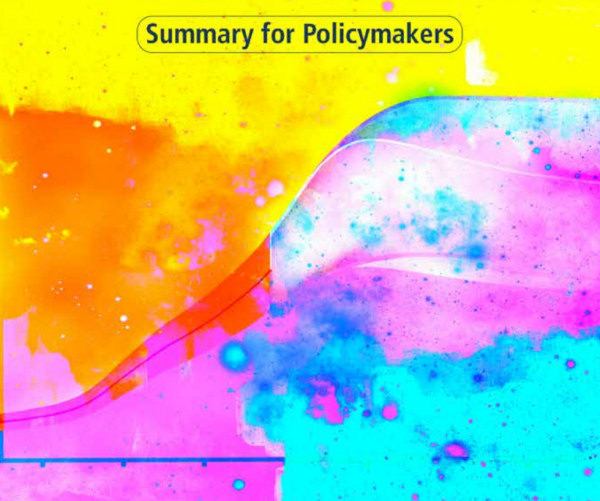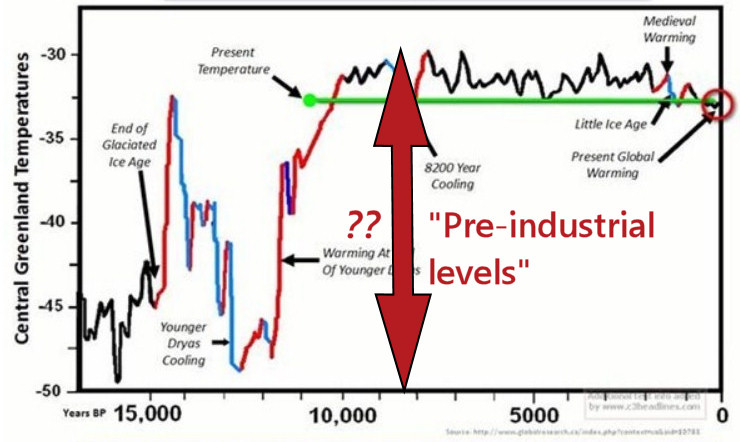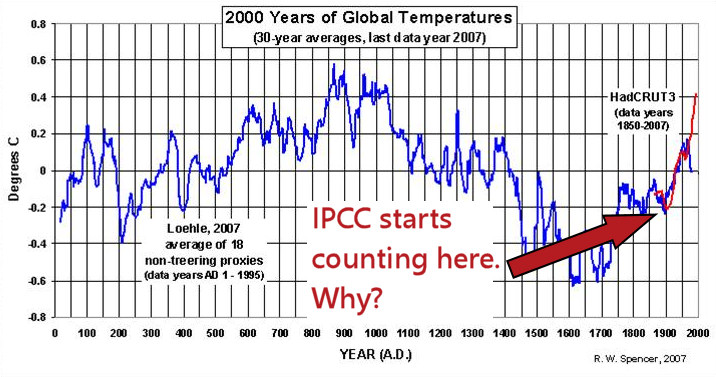IPCC – Back to the Little Ice Age?

11/15/2018 19:20 - Posted by Tom van Leeuwen
Recently, the IPCC published it's “Summary for Policymakers 2018 - An IPCC Special Report on the impacts of global warming of 1.5°C above pre-industrial levels.”
The strange thing is that the IPCC never defines what they mean by “pre-industrial levels”. Do they mean the Holocene Optimum, 8,000 years ago, when temperatures were 4°C warmer than now? That’s a pre-industrial level. Or do they mean the depths of the latest glacial period, 15,000 years ago, with temperatures more than 15°C below the current averages? That’s a pre-industrial level as well.

It’s not until page 6, after repeating “pre-industrial levels” a large number of times, that the phrase is substituted once, and only once, by “the 1850–1900 period”, somehow indicating that is the pre-industrial period they're referring to. After that, it’s back to the very unscientific “pre-industrial levels” wording.
Clearly, the IPCC wants to make sure to
frame that the supposed warming has something to do with industrialization.
What they do not tell you is that the 1850-1900 period marks the end of the “Little Ice Age”, the coldest period of the Holocene (the last 10,000 years.)
Wikipedia describes that period as “
Europeans sought explanations for the famine, disease, and social unrest that they were experiencing”, and “
… consequences of the Little Ice Age: livestock epidemics, cows that gave too little milk, late frosts, and unknown diseases.”
Is that the type of world the IPCC wants to lead us back to?

The warming we observe is nothing more than the return to the normal situation during the Holocene, leaving behind the extremes of the Little Ice Age.
On a brighter side, the IPCC now forecasts 26-77 cm sea-level rise until 2100 instead of the 26-82 cm they predicted 5 years ago. Maybe they need a couple of additional special meetings at exotic locations in order to discover that the sea level rise is not accelerating at all and that all of the forecasts that were made 30 years ago have failed.



